Hyundai i30 vs Toyota Corolla Touring Sports - Differences and prices compared
Compare performance (140 HP vs 178 HP), boot space and price (24000 £ vs 29600 £ ) at a glance. Find out which car is the better choice for you – Hyundai i30 or Toyota Corolla Touring Sports?
Costs and Efficiency:
Looking at overall running costs, both models reveal some interesting differences in everyday economy.
Hyundai i30 has a clearly perceptible advantage in terms of price – it starts at 24000 £ , while the Toyota Corolla Touring Sports costs 29600 £ . That’s a price difference of around 5614 £.
Fuel consumption also shows a difference: Toyota Corolla Touring Sports manages with 4.40 L and is therefore evident more efficient than the Hyundai i30 with 5.70 L. The difference is about 1.30 L per 100 km.
Engine and Performance:
Power, torque and acceleration are the classic benchmarks for car enthusiasts – and here, some clear differences start to show.
When it comes to engine power, the Toyota Corolla Touring Sports has a clearly perceptible edge – offering 178 HP compared to 140 HP. That’s roughly 38 HP more horsepower.
In acceleration from 0 to 100 km/h, the Toyota Corolla Touring Sports is clearly perceptible quicker – completing the sprint in 7.50 s, while the Hyundai i30 takes 9.60 s. That’s about 2.10 s faster.
In terms of top speed, the Hyundai i30 performs hardly perceptible better – reaching 197 km/h, while the Toyota Corolla Touring Sports tops out at 180 km/h. The difference is around 17 km/h.
Space and Everyday Use:
Beyond pure performance, interior space and usability matter most in daily life. This is where you see which car is more practical and versatile.
Both vehicles offer seating for 5 people.
In curb weight, Hyundai i30 is slightly lighter – 1291 kg compared to 1485 kg. The difference is around 194 kg.
In terms of boot space, the Toyota Corolla Touring Sports offers noticeable more room – 596 L compared to 395 L. That’s a difference of about 201 L.
In maximum load capacity, the Toyota Corolla Touring Sports performs somewhat better – up to 1606 L, which is about 305 L more than the Hyundai i30.
When it comes to payload, Hyundai i30 a bit takes the win – 509 kg compared to 440 kg. That’s a difference of about 69 kg.
Who wins the race?
The Toyota Corolla Touring Sports proves to be outperforms in nearly all aspects and therefore becomes our DriveDuel Champion!
Toyota Corolla Touring Sports is the better all-rounder in this comparison.
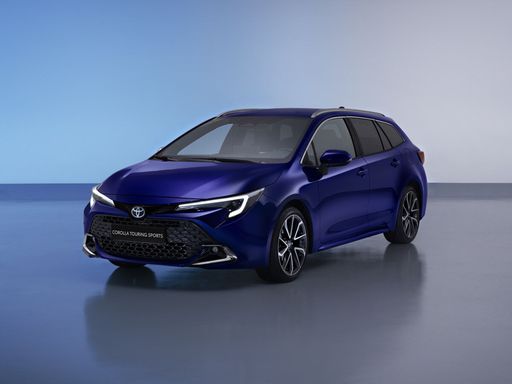
Toyota Corolla Touring Sports
Costs and Consumption
View detailed analysis
Engine and Performance
View detailed analysis
Dimensions and Body
View detailed analysis
Hyundai i30
The Hyundai i30 proves that sensible can also be stylish, offering a confident driving character wrapped in neat, modern design. It serves up a roomy, well-equipped cabin and composed ride that make everyday motoring feel like a clever purchase rather than a compromise.
details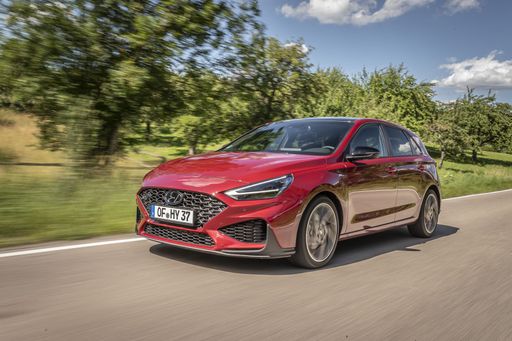
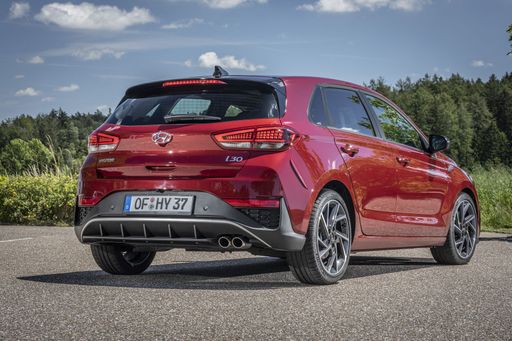
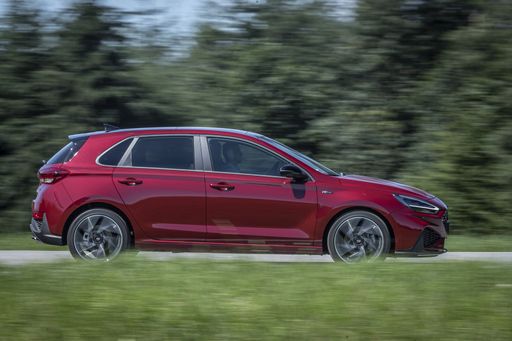
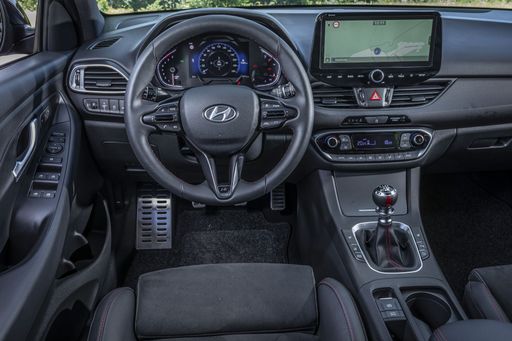
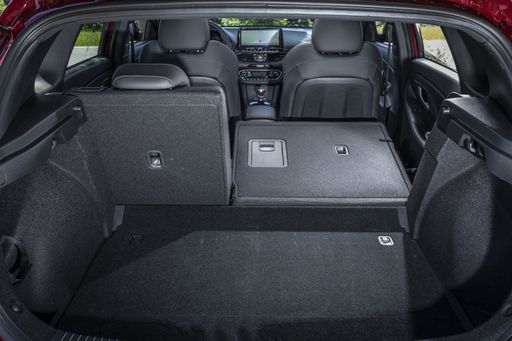
Toyota Corolla Touring Sports
The Toyota Corolla Touring Sports is a sensible yet stylish estate that blends everyday practicality with Toyota's trademark reliability, making it the kind of car that quietly gets on with family life without drama. Inside it's cleverly packaged for luggage and kids' gear and feels calm and comfortable on the road — sensible rather than flashy, but with enough character to make daily drives more enjoyable.
details
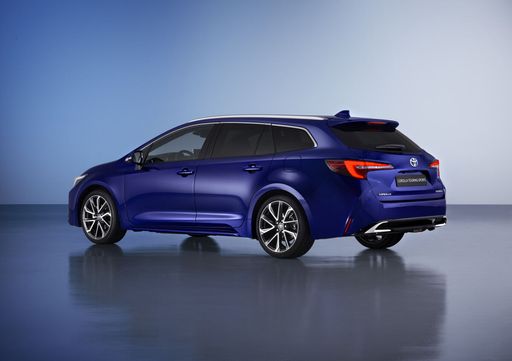
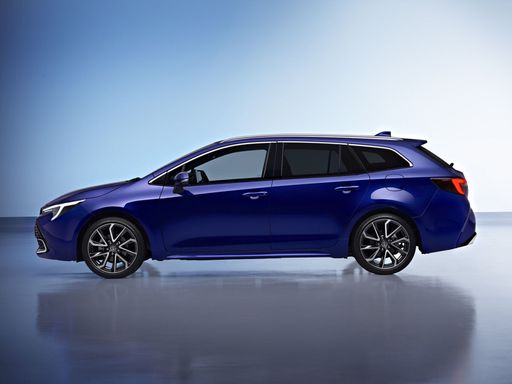
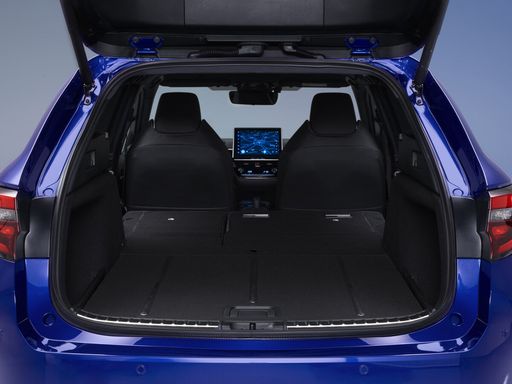
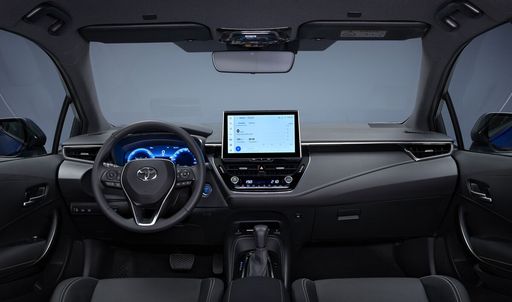
Costs and Consumption |
|
|---|---|
|
Price
24000 - 29300 £
|
Price
29600 - 36400 £
|
|
Consumption L/100km
5.7 - 6 L
|
Consumption L/100km
4.40 L
|
|
Consumption kWh/100km
-
|
Consumption kWh/100km
-
|
|
Electric Range
-
|
Electric Range
-
|
|
Battery Capacity
-
|
Battery Capacity
-
|
|
co2
130 - 136 g/km
|
co2
100 g/km
|
|
Fuel tank capacity
50 L
|
Fuel tank capacity
43 L
|
Dimensions and Body |
|
|---|---|
|
Body Type
Hatchback
|
Body Type
Estate
|
|
Seats
5
|
Seats
5
|
|
Doors
5
|
Doors
5
|
|
Curb weight
1291 - 1407 kg
|
Curb weight
1485 - 1515 kg
|
|
Trunk capacity
395 L
|
Trunk capacity
581 - 596 L
|
|
Length
4340 mm
|
Length
4650 mm
|
|
Width
1795 mm
|
Width
1790 mm
|
|
Height
1455 mm
|
Height
1435 mm
|
|
Max trunk capacity
1301 L
|
Max trunk capacity
1591 - 1606 L
|
|
Payload
463 - 509 kg
|
Payload
400 - 440 kg
|
Engine and Performance |
|
|---|---|
|
Engine Type
Petrol, Petrol MHEV
|
Engine Type
Full Hybrid
|
|
Transmission
Manuel, Automatic
|
Transmission
Automatic
|
|
Transmission Detail
Manual Gearbox, Dual-Clutch Automatic
|
Transmission Detail
CVT
|
|
Drive Type
Front-Wheel Drive
|
Drive Type
Front-Wheel Drive
|
|
Power HP
100 - 140 HP
|
Power HP
140 - 178 HP
|
|
Acceleration 0-100km/h
9.6 - 13.1 s
|
Acceleration 0-100km/h
7.5 - 9.2 s
|
|
Max Speed
178 - 197 km/h
|
Max Speed
180 km/h
|
|
Torque
172 - 253 Nm
|
Torque
-
|
|
Number of Cylinders
3 - 4
|
Number of Cylinders
4
|
|
Power kW
74 - 103 kW
|
Power kW
103 - 131 kW
|
|
Engine capacity
998 - 1482 cm3
|
Engine capacity
1798 - 1987 cm3
|
General |
|
|---|---|
|
Model Year
2024
|
Model Year
2025
|
|
CO2 Efficiency Class
D, E
|
CO2 Efficiency Class
C
|
|
Brand
Hyundai
|
Brand
Toyota
|
What drive types are available for the Hyundai i30?
Available configurations include Front-Wheel Drive.




